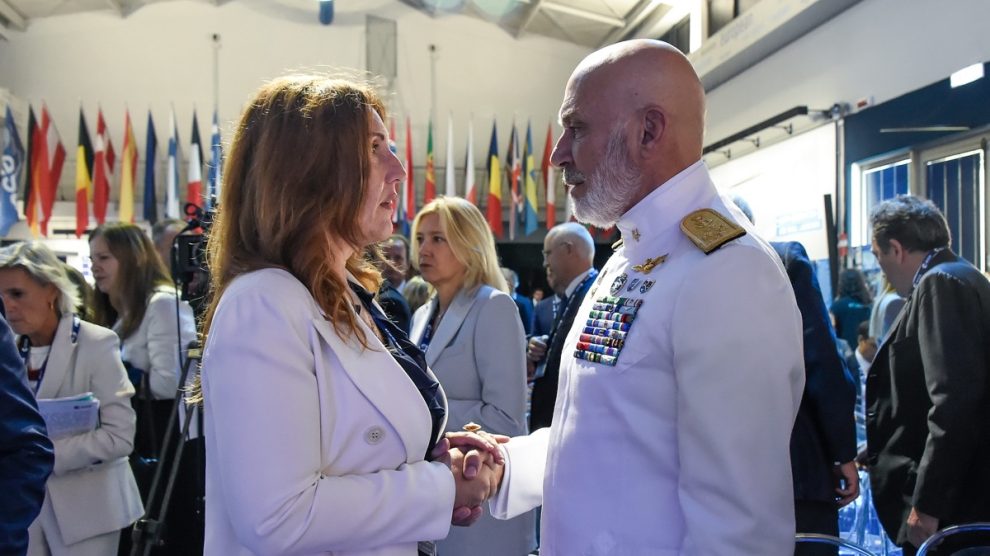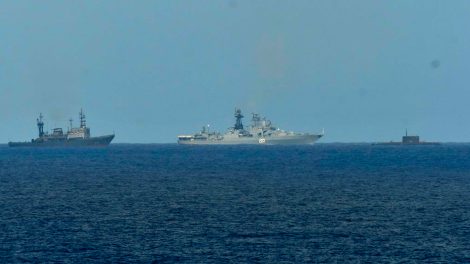As Brussels transitions from declarations to capacity-building, the EDIP regulation — proposed in March 2024 and recently approved in plenary — aims to expand Europe’s defence manufacturing base and ensure the timely availability of critical systems. For Italy, the debate intersects with a broader question: how to build alliances, industrially and militarily, without creating new barriers inside Europe.
The big picture: MP Donazzan, from the leading majority party Fratelli d’Italia (FdI), argues that Europe must avoid a self-inflicted wound: “If the EU tries to become ‘sovereigntist’ at the European level, we risk hurting ourselves.” Behind the scenes, Italy fought to revise key EDIP provisions, especially those that risked excluding Italian supply chains due to strict component-origin thresholds.
Why she matters: As shadow rapporteur, Donazzan helped reshape the EDIP text to reflect Italy’s industrial ecosystem — from Leonardo to the dense network of SMEs powering national supply chains. Her push to include third-country partners aligned with NATO and the Mattei Plan adds a geopolitical dimension to the industrial debate.
Q: What are the key advantages of the EDIP’s approval in Strasbourg?
A: The goal is to broaden Europe’s defence industrial base and strengthen production capacity in ways that support our companies. I worked to change many elements of the initial draft, making the final text much closer to Italy’s needs: from major contractors like Leonardo to the SMEs now integrated into European supply chains.
- EDIP also marks a cultural shift. The old antimilitarism — the idea that we shouldn’t even talk about the defence industry — has been overtaken by reality. Europe now recognises that defence production is essential, though funding remains insufficient.
Q: How did you address the risk of “ad excludendum” mechanisms inside EDIP?
A: One priority was to modify rules affecting third countries — especially those within alliances. NATO is the core reference, but we must also work with non-hostile partners, including those tied to broader initiatives like the Mattei Plan.
- Initially, high component-origin thresholds would have excluded Italian production. We corrected this, raising the percentages and aligning EDIP with its strategic goal: expanding the European and Italian industrial base.
- At the same time, alliances matter. Military strategy often follows industrial strategy — joint production creates long-term strategic ties. We must use cooperation with third countries as part of an industrial and military partnership system.
Q: What should Europe avoid?
A: We must avoid becoming “European sovereigntists” to the point of damaging ourselves.
- There is a paradox: those who accuse Italy or others of being overly focused on national interests — often with a Parisian accent — then shift perspective when European interests are at stake.
- Short-sightedness at the national level must not undermine the broader objective: enlarging the industrial base and strengthening strategic alliances.
Q: Italy brings recognised excellence to the sector. What can its know-how contribute?
A: Italy has extraordinary production capabilities spread across multiple sectors.
- At one stage, some argued for allocating exclusive specialisations — Italy on naval systems, Germany on aviation, and so on. But excessive specialisation creates uncertainty.
- If you become too specialised, you may not become a leader — you might end up isolated. In today’s globalised context, that is a real risk.
- Industrial history shows something different: our strength lies in industrial districts.
Q: What makes industrial districts a “jolly” for Europe?
A: A district may not rely on a single narrow specialisation, but its flexibility — the ability to adapt quickly — is invaluable in an era of hybrid, multi-level, multi-geographic warfare.
- Today, we cannot simply move a tank across Europe because of administrative and authorisation hurdles.
- Italy can export a virtuous model: not rigid specialisation, but shared competencies within a flexible ecosystem.
- That is how you build a large, resilient European defence production district.
The bottom line: As Europe seeks to boost its defence readiness, avoid supply bottlenecks, and build strategic depth, Italy argues for a flexible model rooted in industrial districts — one that is adaptable, networked, and alliance-friendly.
- Donazzan’s message is clear: Europe’s quest for autonomy cannot become a fortress mentality. Strategic openness, calibrated cooperation with partners, and a broader industrial base are the only ways to make EDIP a pillar of genuine European defence capacity.





